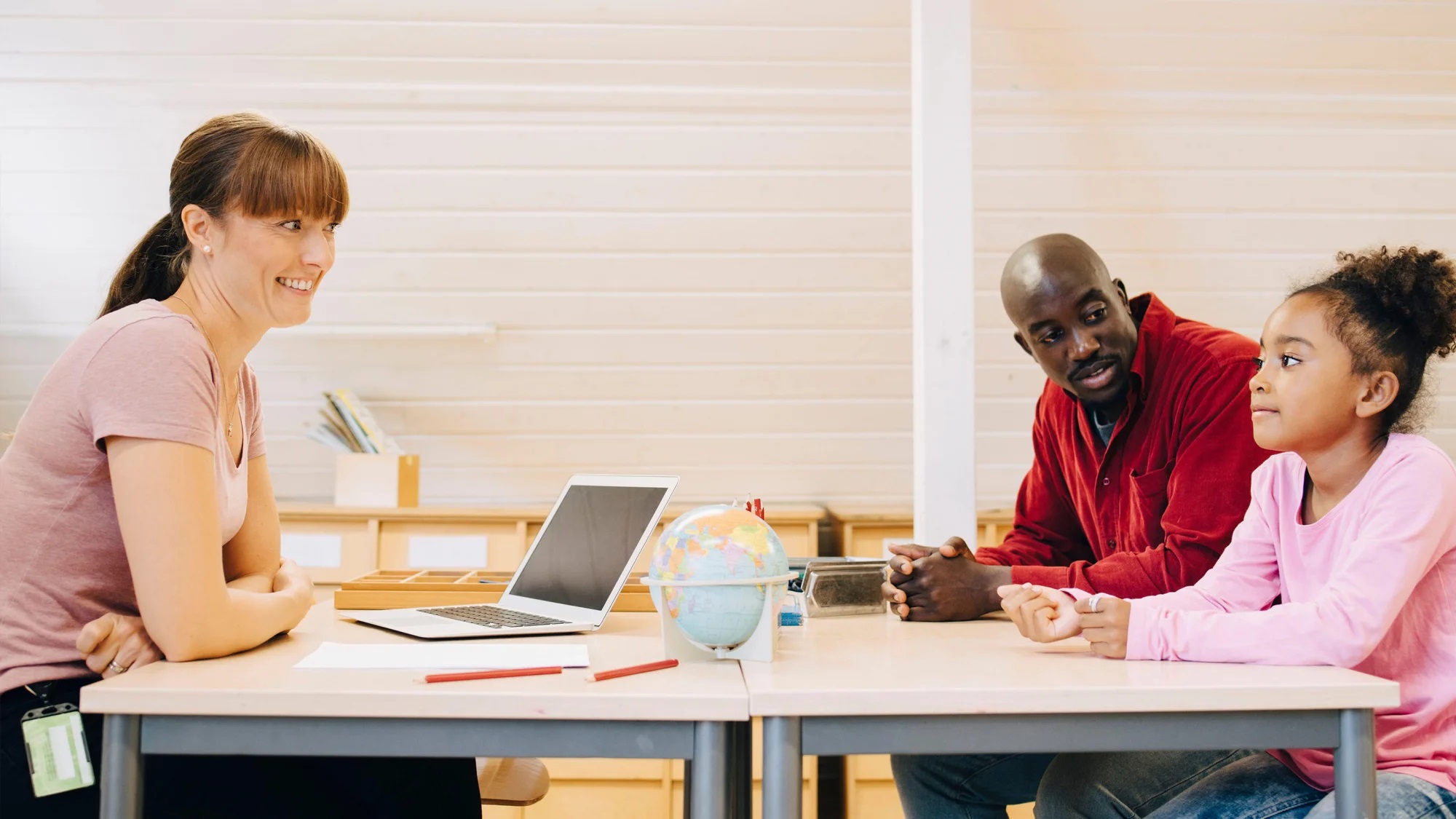
How APs Can Make an Impact With Families
Communicate consistently and thoughtfully to forge connections
Topics: Assistant Principals, School Culture and Climate
In the social and academic development of children, educators, and families play integral and overlapping roles. Research shows that when families are involved in their child’s education, academic performance, attendance, and behavior improve; social-emotional skills are positively affected; and graduation rates go up.
Forging strong connections between families, educators, and school leadership is particularly important for students needing individualized education plans (IEPs). The following strategies can assist school leaders and educators in better connecting with parents and guardians to benefit all students, including those with specialized needs.
Bridge the Knowledge Gap
Most families don’t have the same training as school leaders and educators, which can create a rift in experience, understanding, and communication. Offering straightforward feedback on how a student’s demonstrated behavior differs from that of their classmates can be helpful. “I really try to avoid special ed jargon, and I continuously encourage parents to help their kids at home,” says Lara Fickes, a diverse learner teacher at Patrick Henry Elementary School in Chicago. “It’s also helpful to ask parents for their input on the students’ needs, accommodations, placement, etc., as we write the IEP, because that makes a big difference in their engagement.”
Practice Thoughtful Communication
Establish strong family ties prior to the first day of school, says Matthew Crater, sixth grade administrator at Haverford Middle School in Havertown, Pennsylvania, and a 2022 NAESP National Outstanding Assistant Principal. “During the in-service days preceding the start of the school year, one of the tasks we ask our teachers to engage in is connecting with each of their families,” he says. “Teachers send ‘about me’ emails, send postcards, make phone calls, and host Zoom meet-and-greets. During orientation days, students and their families get the opportunity to tour our building and learn more about the structure of the school day.”
Tailor Your Strategies
In schools with multicultural student populations, family engagement that incorporates regular sharing of classroom news and student successes is particularly important. “Teacher-home communication may be new and is likely to be reserved for bad news only,” Louise El Yaafouri, an independent consultant in refugee and immigrant newcomer education, told Edutopia.
If language barriers exist, use online tools such as Google Translate, ClassDojo, or the Remind app to translate communications between the school and parents. Also cultivate connections at school and in the families’ communities who can help translate updates or interpret in meetings, The Learning Coalition suggests. Label school spaces in other languages to welcome visiting parents and establish an informal vocabulary-builder for kids.
Know the Law
In terms of training, many school administrators aren’t getting enough information about the fundamentals of special education law, and many don’t have the kind of training needed to cultivate a supportive school culture for students with disabilities. As such, school administrators must develop a working knowledge about disabilities and the learning challenges faced by students needing extra support.
Experts suggest that before a student’s IEP meetings, administrators take the time to gather data and observe the child in class, if possible. It’s also a good idea to regularly review the section of the Individuals with Education Disabilities Act outlining a school’s legal obligations to special ed students. Some states might have additional requirements that go beyond federal law, and many offer guides to help parents understand state-specific policies and procedures.
Connect Parents With Outside Resources
Directing parents to outside support and assistance is one of the best ways to help them gain additional knowledge, and online training is available to help educators problem-solve and manage conflict. The Center for Parent Information & Resources is a centralized online repository of information and products serving families of children with disabilities. Its “Working Together” series, for example, includes five self-directed courses that offer families and educators strategies to work together and through conflict in the school or an IEP meeting.
Acknowledge Parents’ Expertise
While parents aren’t usually mental-health experts or educators themselves, they are the experts when it comes to knowing their kids, so when they articulate they that something doesn’t feel right, take a closer look. Parents often have the answers to the most important questions about a child’s learning, including: What are the child’s passions? What motivates them? What are they like with friends? How has the child enjoyed the school experience so far? This kind of knowledge could take months for teachers to gather on their own. You might also ask the parents if they have any interests or traditions they would like to share, opening the door for families to take an active role in school life.
Belinda Lichty Clarke is director of alumni engagement at the Medill School of Journalism at Northwestern University and a freelance writer based in Evanston, Illinois.

